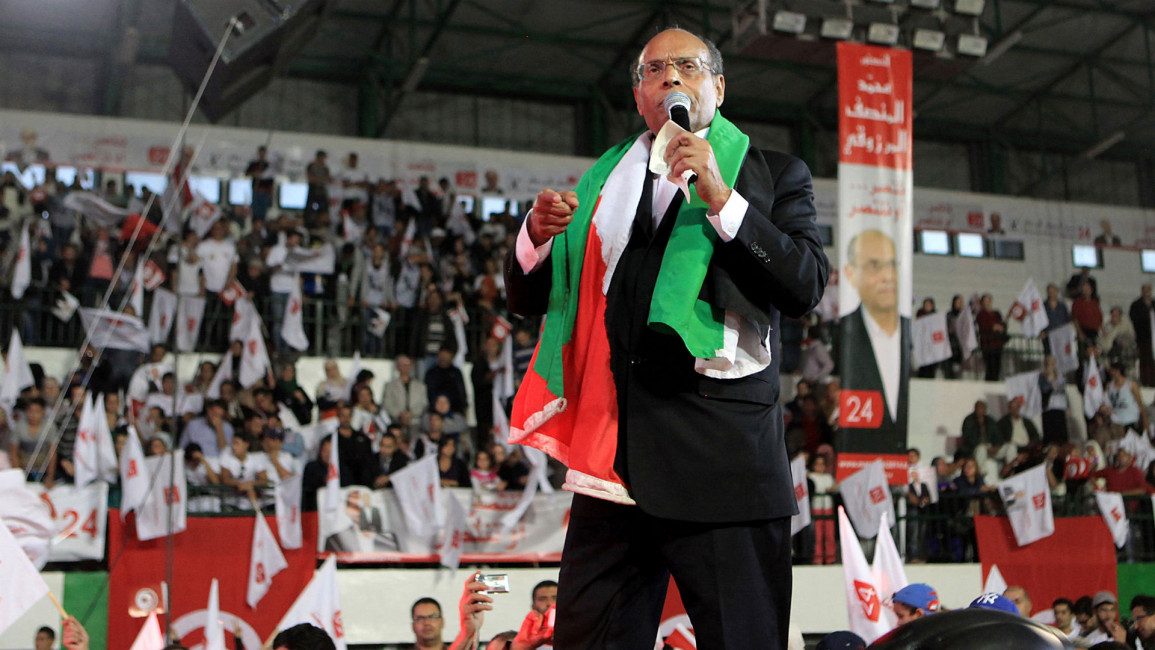
Tunisia: Choppy waters ahead
Tomorrow, Tunisians will elect a new president in the first presidential election under their new constitution. The event will be the final act in Tunisia’s formal transition from the autocracy of the Zine el-Abedine Ben Ali regime, which was swept away at the start of 2011, to a new epoch of democratic governance.
That, at least, is the hope. Tunisia, however, still faces a multitude of problems that could undermine its democratic aspirations.
| Nidaa Tounes will have to convince the sceptical but significant minority that it will not turn the clock back |
The main problem reflects directly on the issue of democratic transition. It was highlighted by the legislative elections held a month before, on October 26. They were won by Baji Caid Essebsi’s party, Nidaa Tounes which captured 85 seats, compared with the six it had had in the previous National Constituent Assembly, elected in October 2011.
Indeed, the parties which had done well then were the biggest losers now; Ennahdha, Tunisia’s Islamist party and the leading party in government during the transitional period, saw its total decline by 16 seats to 69. Its partners in the Troika government – current President Monçef Marzouki’s Congrès pour la République and former Assembly Speaker Mustapha Ben Jafaar’s Ettakatol – were virtually wiped out, a devastating comment on what Tunisians thought of their effectiveness in charge. There is little doubt that the elections were a true reflection of public opinion, moreover: 3.59 million of Tunisia’s 5.23 million registered voters (69 per cent) turned out to vote.
The problem is that Nidaa Tounes – now the party that will lead the next governmental coalition and whose leader, the octogenarian Beji Caid Essebsi, is tomorrow’s presidential frontrunner – is really a heterogeneous collection of supporters of the Bourguiba and Ben Ali regimes, liberal businessmen, trade unionists and former politicians. They are only held together by a yearning for the past and the charisma of Tunisia’s first president-for-life, Habib Bourguiba.
Baji Caid Essebsi, who is expected to win the presidency, was himself a minister under Bourguiba. His likely victory now is being seen as the result of widespread hankering for firm leadership as in the past, rather than for democratic participation. Voters are desperate for economic improvement, given the economic slowdown since the Arab uprising, and for better security, given the extremist disruption in 2013 that the Troika had been so slow to acknowledge or counter with any effective response.
Future coalitions?
Caid Essebsi’s victory is made more likely by the way in which a plethora of presidential candidates is likely to split the vote in his favour. Twenty-five candidates, including the current president, Monçef Marzouki, originally declared for the election. Five of them pulled out by the time the candidates’ list closed two weeks ago. They did so either because they recognised they had little chance of success or because they claimed that the electoral process, like in the legislative elections, was corrupt – an accusation generally disputed by both domestic and foreign observers. Some, too, decided to endorse the frontrunner, Caid Essebsi, rather than stand.
Interestingly enough, Ennahdha, declined to put up a candidate or to endorse any of the candidates. The reason, according to the party’s founder and president, Rachid Ghannouchi, in a 19 November article in the New York Times was, “[B]ecause we judged that this abstention would help maintain the equilibrium necessary for the healthy development of our democracy.”
There might have been other reasons, too. Under the new constitution, the presidency has a significant executive role to play in foreign policy and defence and in selecting the future head-of-government from within the party that won a plurality or an outright majority in the legislative elections. Although there are fears that a single party controlling both the presidency and the legislature could adversely affect democratic governance, the fact that Nidaa Tounes, despite being the largest party in the Assembly, does not have an outright majority means that it will have to seek coalition partners.
And, even though one reason for its creation was to block Ennahdha from attaining power again, it has not escaped the notice of observers that the two parties together would control more than two-thirds of the seats in Tunisia’s legislative assembly. Any other coalition formation will be far more fragmented and will make for much weaker government just at a time that Nidaa Tounes is anxious to show it is capable of strong leadership yet does not threaten Tunisia’s democratic hopes.
Beyond that, too, the party and its leader will have to convince the sceptical but significant minority of voters who did not support them, as well as Tunisia’s largely disillusioned youth who did not vote at all, that it will not turn the clock back to the autocracy of the past.
A coalition with Ennahdha, given its ongoing electoral support under the aegis of a Nida Tounes president might be one way of doing this, despite the rage it would cause amongst Tunisia’s secular and leftwing political parties. It would also encourage Tunisia’s supporters abroad who are looking for a government more attuned to rebuilding the country’s straitened economy but also prepared to guarantee domestic consensus, not just between moderate Islamists and the secular centre but between past and present.




